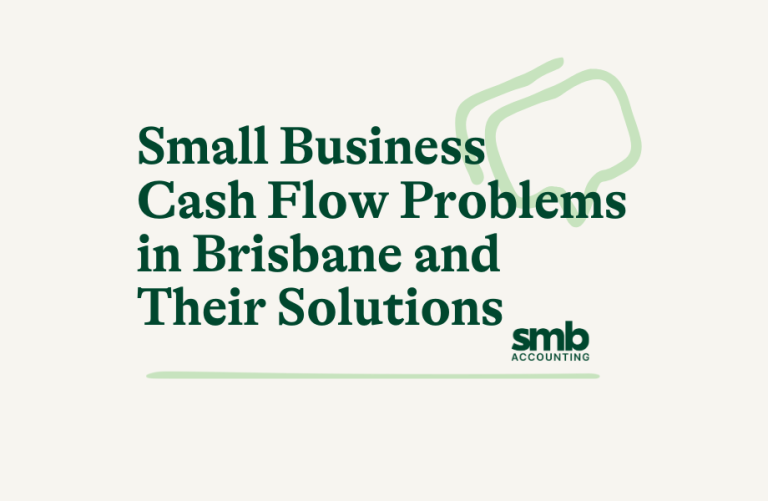Special purpose financial statements play a crucial role for many businesses and organisations. These statements are tailored to meet specific needs or requirements and often serve a different purpose than general-purpose financial statements. Whether it is for regulatory needs, contractual obligations, or internal management, understanding these specialised reports is key to ensuring they’re used effectively.
When preparing for a special purpose financial statement audit, it is important to know what to expect. The audit process is thorough and involves careful planning, detailed examination of financial records, and ensuring all criteria have been met. Knowing the process can help your business prepare adequately, alleviating stress and ensuring a smoother audit experience.
An effective audit provides insights into your financial practices and highlights areas for improvement. It can also boost the credibility and reliability of your financial reporting. By gaining a deeper understanding of this audit, you can better navigate the complexities of your business’s financial landscape and make informed decisions.
Understanding Special Purpose Financial Statements
Special purpose financial statements are tailored financial reports designed to meet the needs of specific users. Unlike general-purpose statements that offer a comprehensive financial picture for a broad audience, these statements focus on a particular area or requirement. They serve a more targeted function, providing information relevant to the specific interests of stakeholders such as creditors, regulatory bodies, or management.
Typically, special purpose financial statements are required by parties with defined information needs. For example, a lender may ask for these statements to evaluate loan terms, assessing only relevant financial data. Similarly, regulatory agencies might require specific reports to ensure compliance with industry regulations. These statements are also useful in contractual scenarios, where businesses must present financial data as agreed upon in contracts or agreements.
Organisations that operate in regulated industries, such as utilities or insurance, often find themselves preparing these statements. They help address the specific reporting needs of regulators, ensuring that firms remain in compliance with established standards. Businesses undergoing significant transactions, like mergers or acquisitions, might also use special purpose financial statements to focus on particular financial aspects pertinent to the transaction.
The Audit Process for Special Purpose Financial Statements
Auditing special purpose financial statements involves a series of detailed steps designed to verify that the reports accurately reflect the financial position in accordance with the specified criteria. The audit begins with thorough planning. Auditors examine the scope of the engagement and identify the specific objectives outlined by users of the statements. This phase involves establishing an understanding of the entity’s operations and identifying potential risks that could affect the reporting.
Once planning is complete, auditors move to gather evidence. This step is crucial as it forms the backbone of the audit’s assurance. Evidence collection involves reviewing financial records, verifying documentation, and sometimes performing site visits to ensure that the data collected is sound and reliable. Technologies such as data analytics may be used to examine large datasets for irregularities or patterns that warrant further investigation.
Key activities during the audit also include evaluating results from the evidence collected. Auditors compare the financial data against the established criteria, ensuring that all requirements are met. They also examine any adjustments made to the financial statements and assess their appropriateness. This process may highlight findings that need communication to management, such as misstatements or compliance issues.
Finalising the audit involves compiling a report detailing the audit findings and conclusions. The report indicates whether the special purpose financial statements provide a true representation of the financial position, as per the specified criteria. This step is crucial as it provides assurance to stakeholders that the reports are accurate and compliant, ultimately supporting informed decision-making.
Key Areas of Focus During the Audit
Auditors concentrate on several critical areas when assessing special purpose financial statements to ensure the reports meet the specific requirements set out by stakeholders. Compliance is a primary area of focus. Auditors evaluate whether the financial statements adhere to the criteria specified by the intended users. This includes verifying that the statements align with contractual agreements, regulatory requirements, or management criteria as stipulated.
Accuracy of financial data is another crucial focus area. Auditors meticulously check that the financial information presented is correct and substantiated by adequate documentation. This involves scrutinising accounting entries, reviewing reconciliations, and ensuring all transactions are backed by valid records.
Verifying transactions is essential to confirm that they are genuine and recorded appropriately. Auditors examine transaction history, checking for any discrepancies or anomalies that could indicate errors or fraudulent activity. They also assess the entity’s internal controls to ensure they are robust and functioning effectively, which helps prevent misuse of resources and financial misstatements.
Effective internal controls are vital components that assure the reliability of financial reporting. Auditors assess these controls, recommending improvements where necessary. By focusing on these areas, auditors provide confidence in the accuracy and integrity of the special purpose financial statements, supporting stakeholders in making informed decisions.
Outcomes and Benefits of the Audit
Completing a special purpose financial statement audit results in several valuable outcomes for businesses. One of the key outcomes is the assurance that the financial statements are an accurate reflection of the company’s position, according to the specified reporting criteria. This assurance instils trust among stakeholders, whether they are investors, lenders, or regulatory authorities.
The audit also offers insights into the financial operations of a business by identifying areas of risk and inefficiency. By addressing these issues, businesses can improve their financial management practices, leading to better resource allocation and cost savings. Furthermore, the audit highlights any weaknesses in internal controls, providing a pathway for strengthening these systems.
The credibility of a business is significantly enhanced through the audit process. Transparent and accurate reporting can positively affect a company’s reputation, fostering confidence amongst partners and clients. Additionally, having audited financial statements readily available can be a crucial advantage when seeking funding or negotiating contracts.
Enhanced financial transparency is another important benefit, as it aids in strategic planning and decision-making. By understanding the financial health and potential risks of the company, management can make informed decisions that pave the way for sustainable growth and success.
Conclusion
Understanding and preparing for a special purpose financial statement audit is a vital part of financial management for businesses needing tailored reports. By being aware of the critical areas auditors focus on, companies can better prepare, ensuring a successful audit process. The resultant benefits, including improved financial practices, credibility, and transparency, are crucial for solidifying a company’s standing and supporting future growth.
If your business requires an audit for special purpose financial statements, consider partnering with SMB Accounting. Our team of experts will guide you through the audit process, ensuring compliance and accuracy, while offering insights to enhance your financial practices. Contact our business accountants in Brisbane today to learn how we can support your business’s financial reporting needs.




